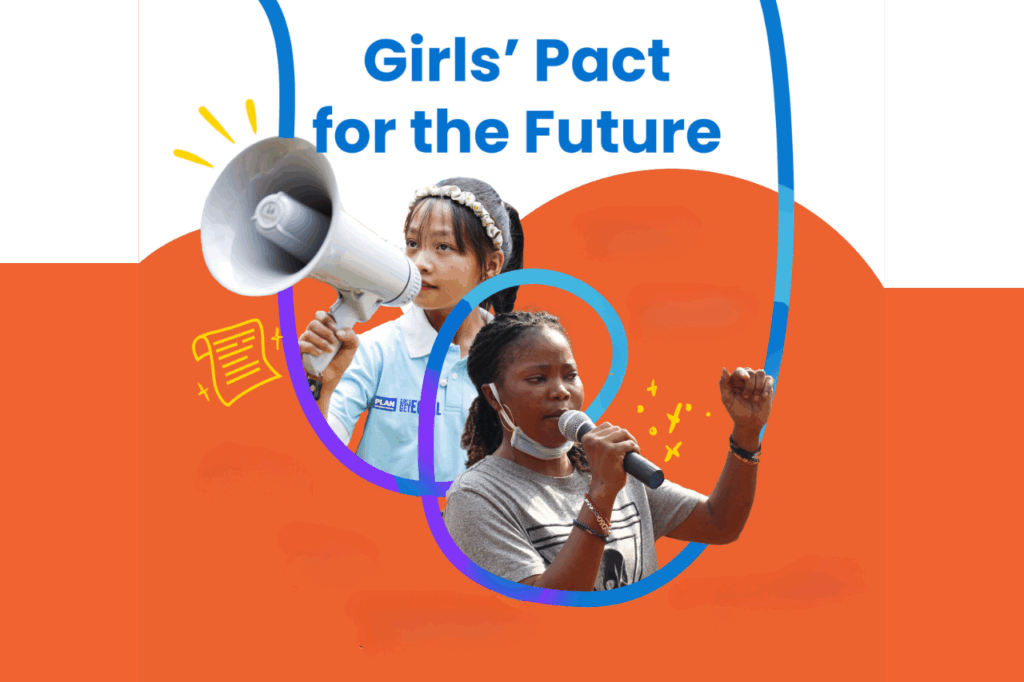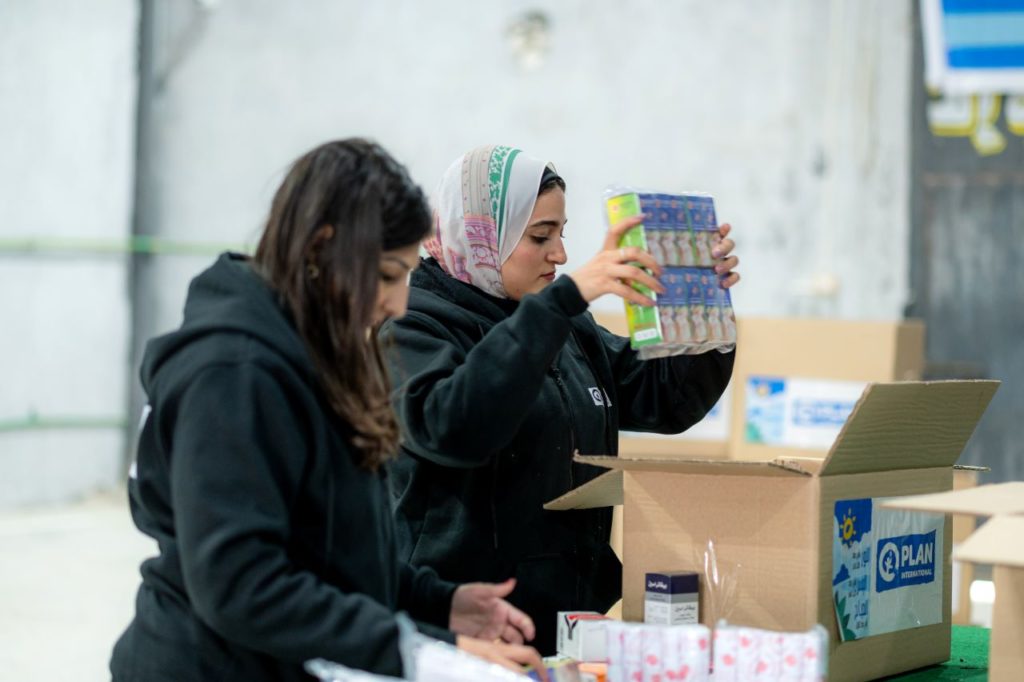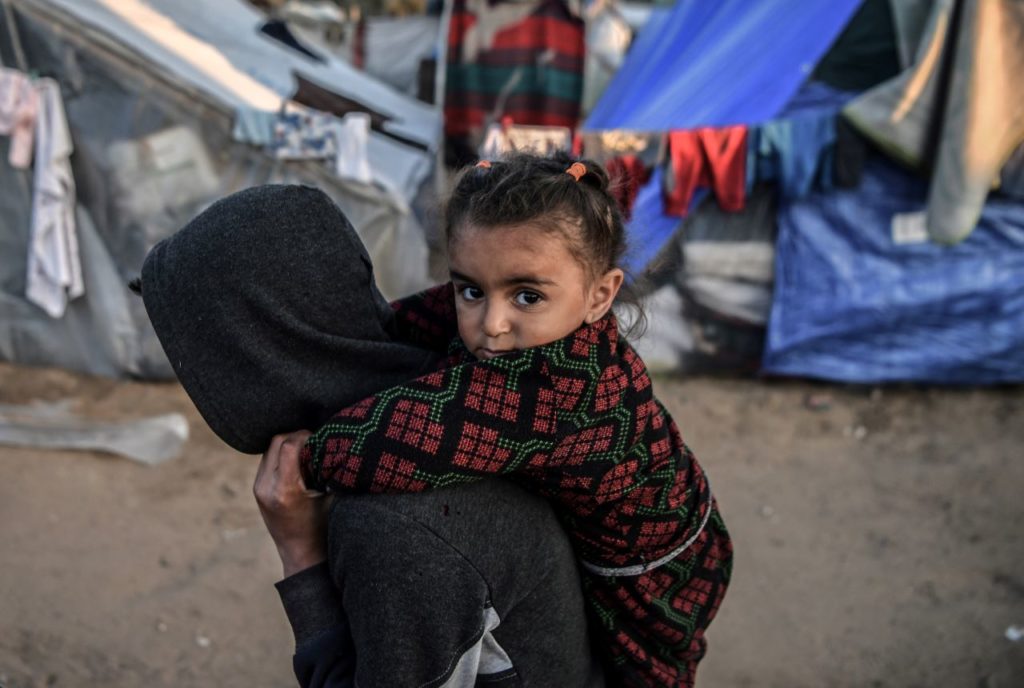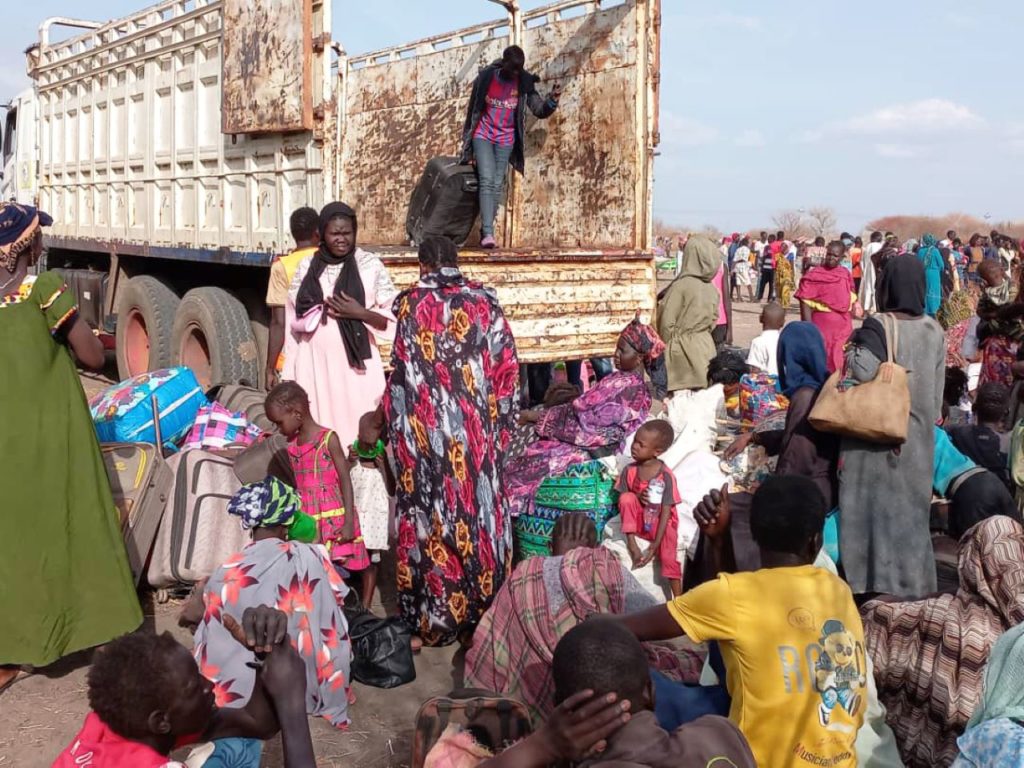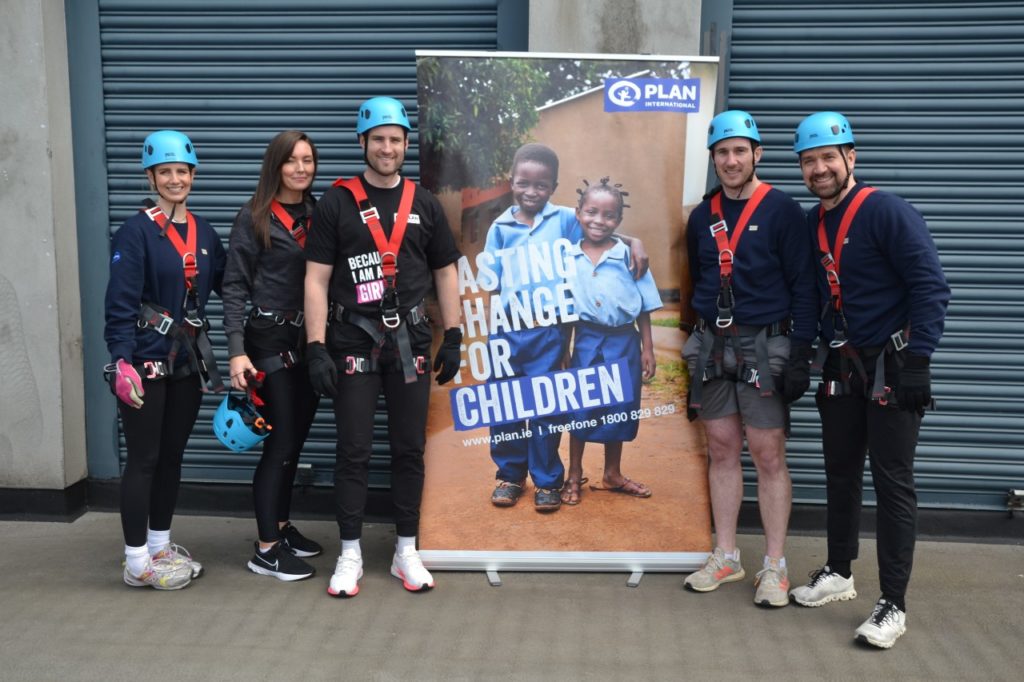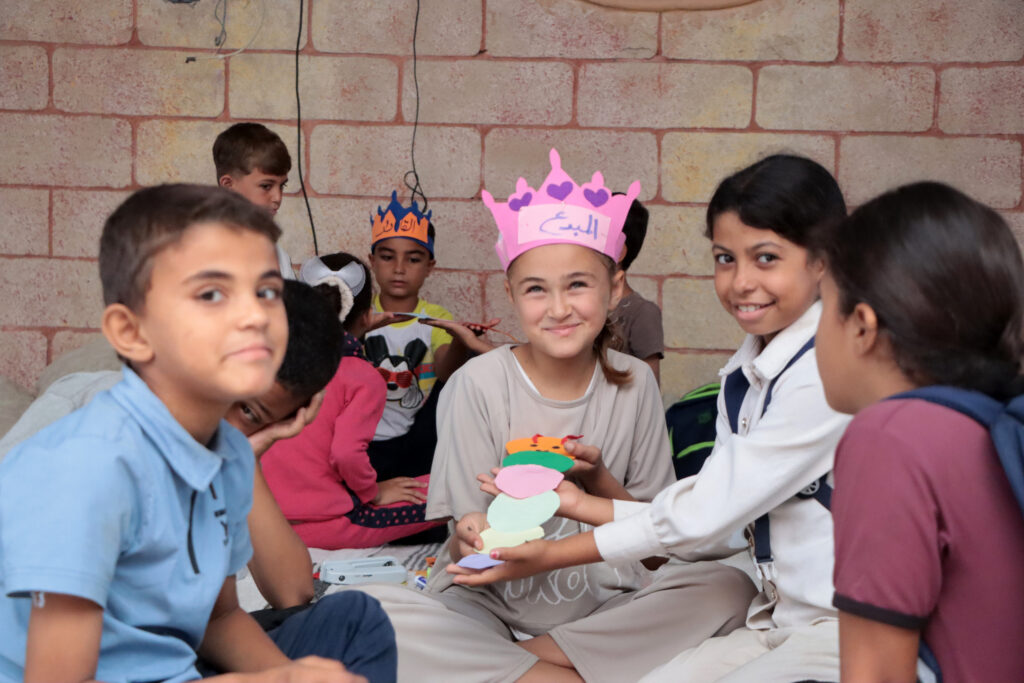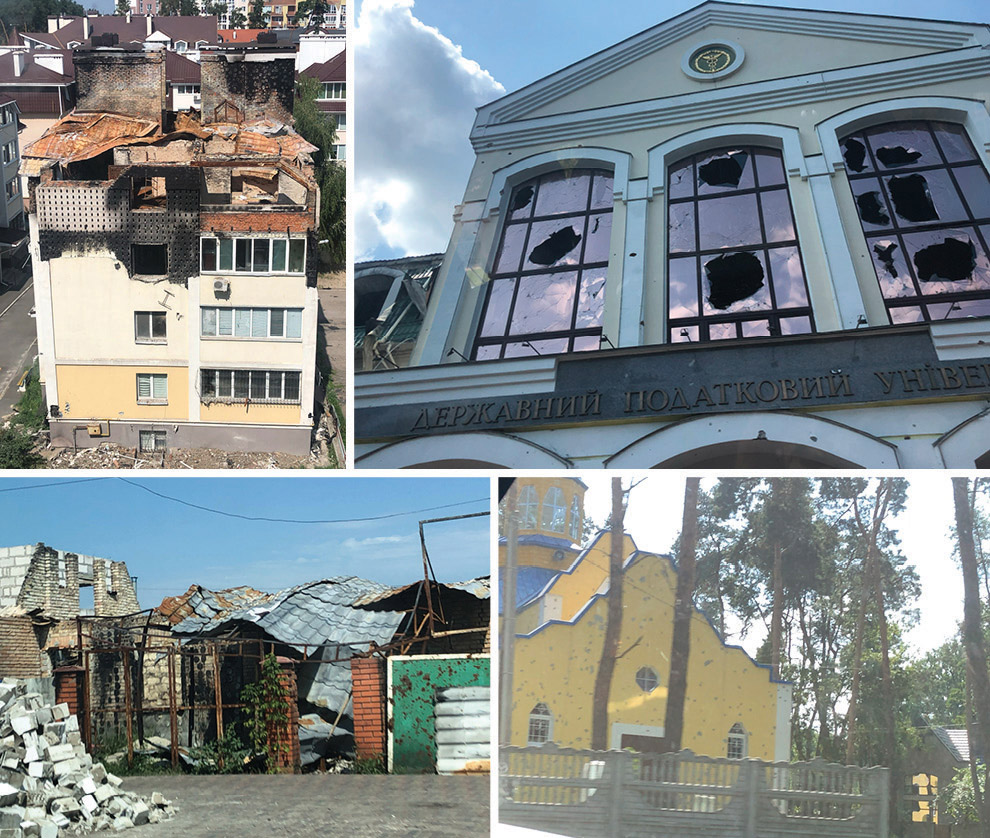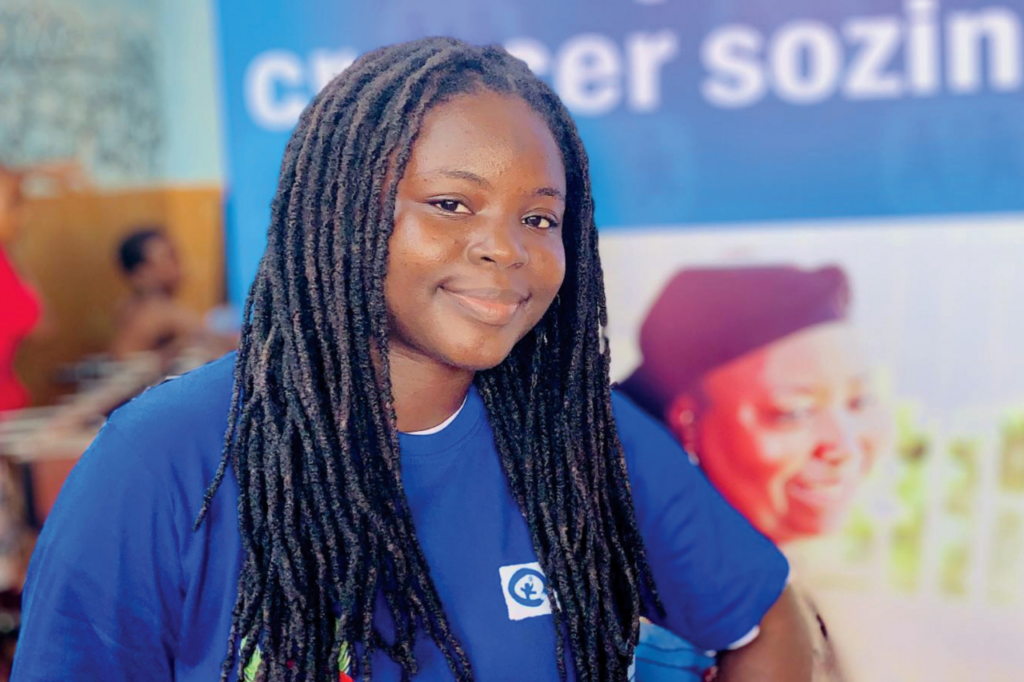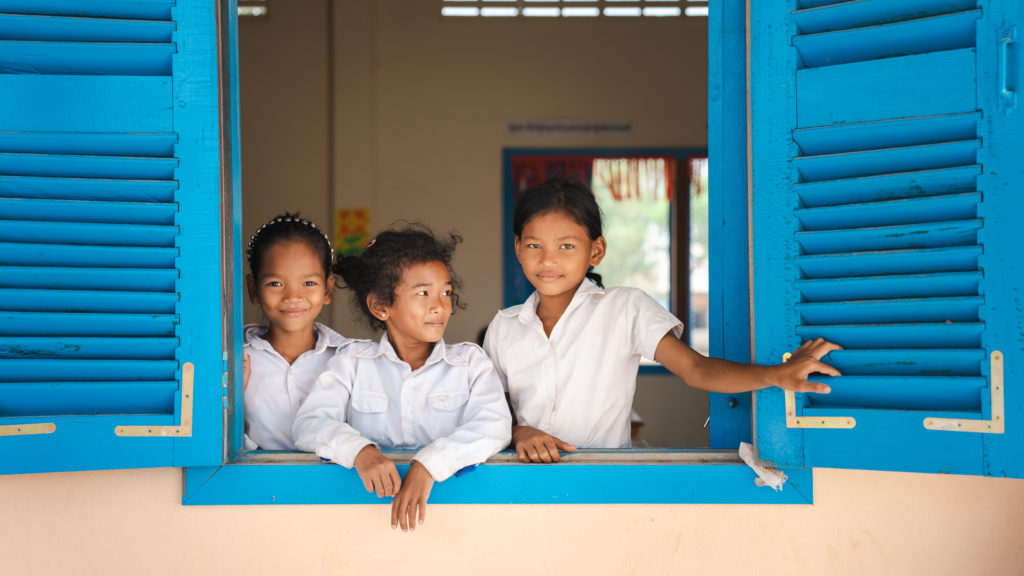16-year-old Antora lives in a small village in Rangpur district, northern Bangladesh. From a traditional rural community, she grew up surrounded by the social norms and customs that often hold girls back in life. Her older sister was married off when she was still a child. Antora vowed that she would not suffer the same fate.
After Antora joined Plan International’s sponsorship programme when she was seven years old, her family started receiving financial support to help cover the cost of their daughter’s education. This has meant Antora has been able to stay in school for longer than her sister and her parents have not felt pressured to marry her off.
“My family is not very well off and does not have much education. Before getting involved with Plan International, various misconceptions were prevalent in my family, especially about girls. My older sister has experienced these for herself and has suffered for a long time,” shares Antora, who lives with her parents, brother and sister.
The importance of learning about your rights
As well as the financial assistance, Antora also took part in various awareness-raising sessions covering different issues that can affect children, particularly girls. “From Plan International we learnt various educational topics. In particular, we girls have learnt how to grow up in a healthy and beautiful environment and what places are safe for us, and how we can avoid risks to our health.”

Antora has realised that a lack of education often results in child marriage. “Before, I had no knowledge about child marriage. But now I know. I keep talking to my friends about this issue. I always try to find out how what risks my classmates are facing,” she explains.
Breaking stereotypes as a girls’ rights campaigner
Now an active girls’ rights campaigner in her district, Antora uses her trusty motorbike to get from one community to another to share the information she has learnt from Plan International. A girl riding a motorbike is almost unheard of in her conservative society, but Antora did not let this stop her.
“At first my family did not want me to learn how to ride one, but now when I go out riding the bike, my parents feel proud of me. Girls in my community are also inspired when they see me riding the bike confidently,” she tells us proudly.

Antora says that girls just want a safe and healthy environment to grow up in. Whenever any girl faces a problem, Antora and her friends discuss it together and look for solutions. Together with her friends, Antora wants all girls in her district to be supported and able to reach their full potential.
“Every month we have meetings where our elder brothers and sisters teach us many life skills and make us aware of different issues. They also give us different tasks to complete which help us to understand the importance of wellbeing, nutrition and education. Now we know how to avoid prejudice, ensure our mental and physical health, access our sexual health and reproductive rights, and prevent the prevalence of child marriage in our families and society,” explains Antora.
Antora has grown into a confident teenager. She knows that during puberty, girls’ bodies go through different changes and this is normal. “First of all, we try to make our family understand these things and then raise awareness in the society. Now we also know what is needed to build a healthy and beautiful mind.”
With the support of Plan International, Antora community is starting to change for the better and some of the old harmful gender stereotypes, traditions and norms are beginning to be broken down, girls are being treated fairly and their rights respected.
“My life has changed ever since I got involved with Plan International. Now, I don’t only think about myself, but also about the society, my community and my country. My future plan is to choose a profession through which I can work, not only for my community, but also for unprivileged people and those who are falling behind,” Antora says.
In year 10 at school, Antora hopes to be able to continue her studies and go to university. “I want to become a lawyer in the future. I want to remove corruption and show corrupt people the right path.”
